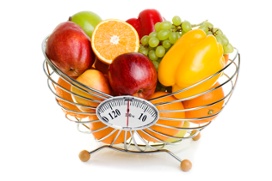What is Emotional Eating
Everyone knows the concept of the comfort food. These are the foods that a person eats to feel better, not because they are hungry. For some people, it might be as simple as a bowl of ice cream during a stressful week. For others, it might be a constant supply of junk food any time they are bored, stressed or annoyed. Emotional eating is a problem that affects the lives of most people in minor or major ways.
 Warning Signs of Emotional Eating
Warning Signs of Emotional Eating
Physical hunger and emotional hunger are both typified by cravings for food. The differences are what makes emotional hunger dangerous. Emotional hunger is subtly different from physical hunger. Here are some signs that point to hunger pangs having an emotional origin.
- Physical hunger builds gradually as a body burns energy and requires more. Emotional hunger is typically triggered suddenly by stress, sudden emotion or boredom.
- Physical hunger is not picky. Craving a specific food is normal, but limiting dining options to a handful of specific cravings is a hint of emotional hunger. Emotional hunger can only be satisfied by that specific craving.
- Physical hunger can be set aside or put out of mind for a time. It does not demand to be satisfied immediately, unless it occurs as part of prolonged fasting. Emotional hunger, meanwhile, demands instant satisfaction. It satisfies an emotional need, not a physical requirement.
- Physical hunger, when satisfied, triggers the body to stop eating. When a person has eaten their fill, physical hunger is no longer present. Emotional hunger remains without regard for physical needs. Emotional eating tends to result in overeating.
- Emotional hunger tends to leave people feeling regret or guilt about eating.
Typical Comfort Foods
Emotional eating has another signal; the choice of foods. For most people, certain foods are considered comfort foods, and the selection tends to follow a gender bias. Both men and women tend to consider ice cream a comfort food. Women also choose chocolate and cookies. Men opt for more protein-filled pizza and steak. The emotional state that leads to emotional hunger is another factor in selecting a comfort food. Boredom triggers cravings for chips and salty snacks. Depression leads to cravings for sweets.
Emotional eating can be a serious dietary problem for many people, and emotional eaters may benefit from consulting a professional. To schedule your free consultation please click below or call Becky Wilborn at (212) 759-8118
